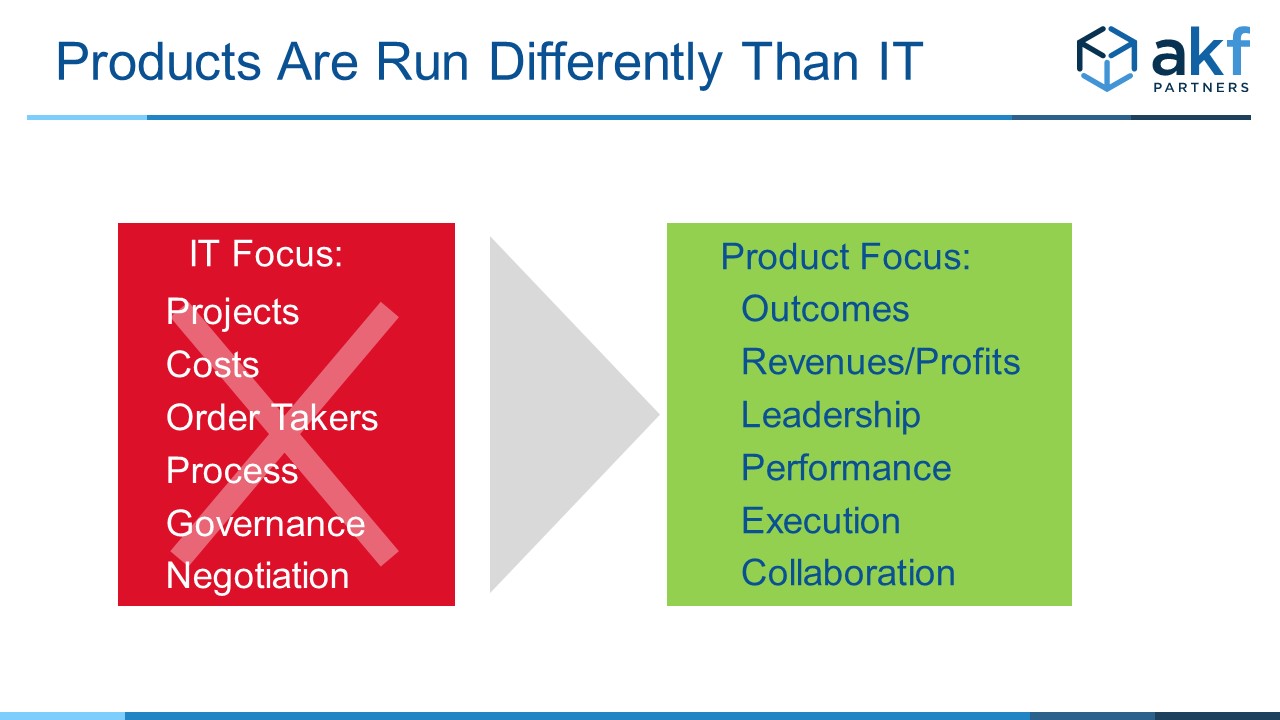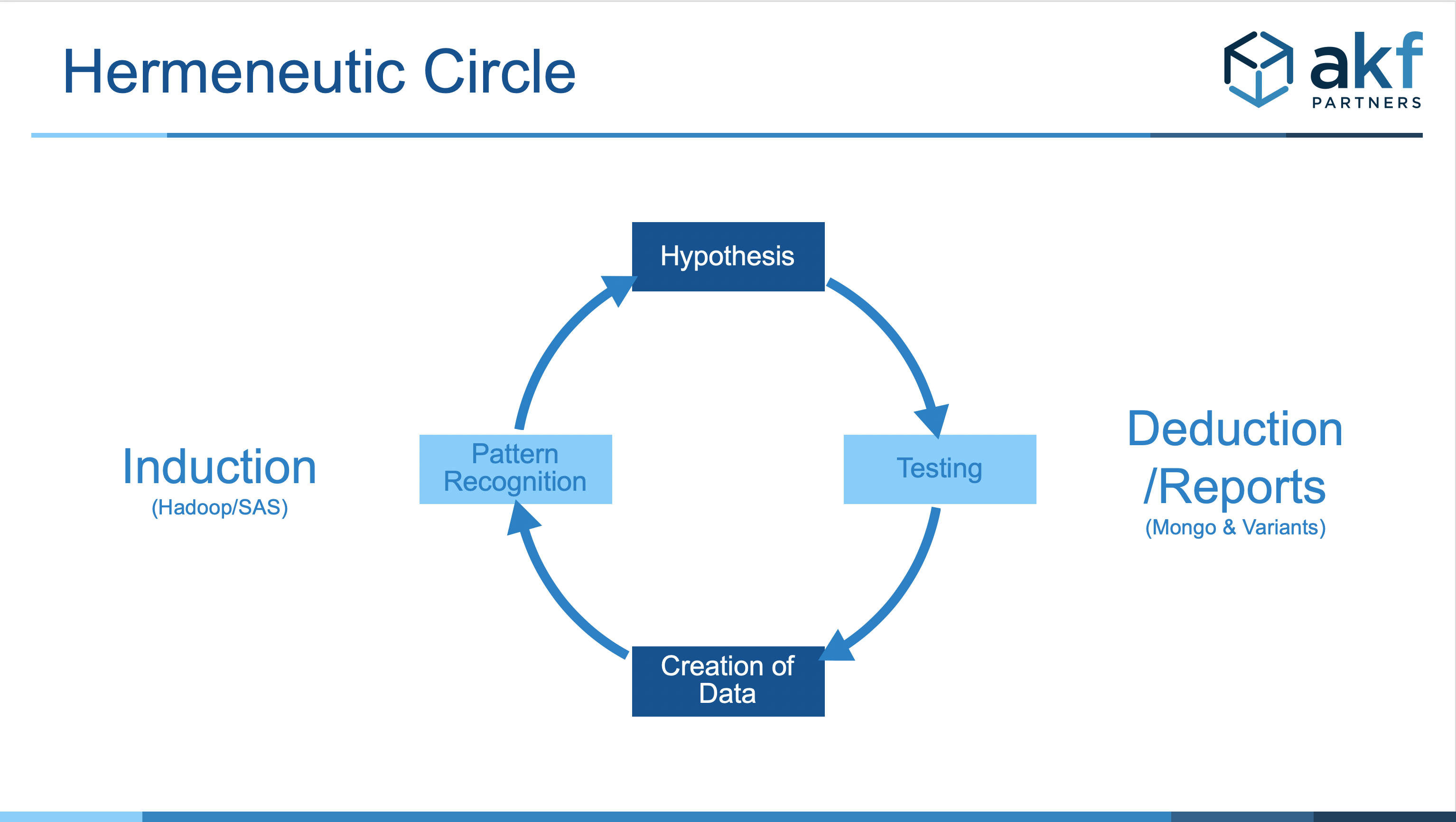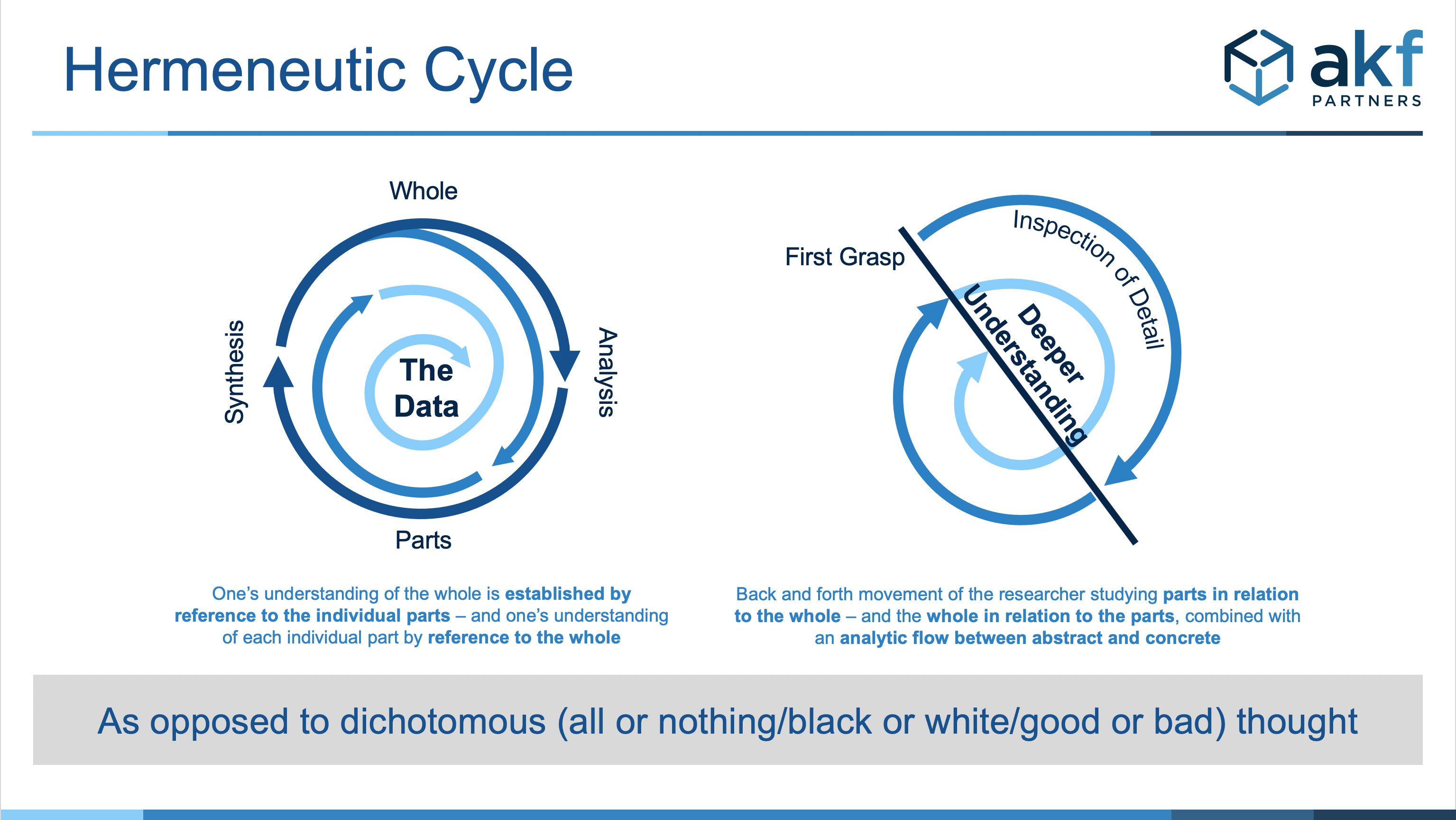
AKF Partners has helped guide companies through digital transformations for over 10 years. We’ve helped traditional brick and mortar service, product, banking and retail companies create compelling sail solutions to harness the increasing power of the prevailing digital winds. This experience has made it clear that no transformation can be successful without addressing 10 key areas. These 10 areas form the foundation of any successful transformation, and a failure to address any of them is at the very least a guarantee to have a slow and painful transformation. In most cases, a failure to address even one of them is a guarantee to fail in the transformation and as a result, fail as a company.
Without further ado, we offer our list of 10 must have principles for any digital transformation.
People First
Every successful transformation starts and ends with people; people who have the right experience, the right mindset, the right approach, and a sizable amount of humility.
- Right Skills, Right Behaviors, Right Experience, Right Time
You need people with experience in the digital world; people who understand that time is of the essence and behave appropriately. Think of it this way: if you were having a surgeon perform a procedure to save your life, do you want a surgeon who is learning on the job? At the very least, you’ll want to make sure that an experienced surgeon is alongside the inexperienced doctor. The same is true for digital transformations.
- Product not IT Mindset
Building solutions for end consumers is a very different world than building solutions for employees. As we indicate in the Art of Scalability, and as Marty Cagan agrees, you must have a product, not an IT mindset, to be successful.
The driving forces behind how one creates a product are different. Product teams look at revenues and profits instead of just costs. Funding outcomes are more important than funding projects. Product teams lead whereas IT teams take orders. Product teams think first about performance, rather than speaking nonstop about process. Governance, while important, takes a back seat to execution – especially executing against measurable outcomes. Collaboration trumps the negotiation between IT teams and business units.

Similarly, the leader of a product engineering organization is different than the leader of an IT team:

- Humility
As we will discuss later under “discovery”, product teams know that they will be wrong often. We eliminate words like “requirements”, because they seem to indicate we completely understand what needs to happen. Humble teams understand the outcome, not the path. The path is initially a set of hypotheses that are tested, validated, or proven wrong and discarded in favor of new hypotheses. The only thing we know is that we will be wrong multiple times before finally landing on a result that meets the business outcomes.
- Outcomes not Projects
As stated above, Digital teams look to fund outcomes – not projects. Think in terms of $XM invested in search for %Y increase in add-to-carts from search resulting in $ZM revenue. Not “Implement Elastic Search”.
Approach Second
The right people will ensure that you follow the processes and approaches that will make you successful – specifically:
- Discovery and Agility
Digital companies attempt to find the right solution through Discovery. Starting with an MVP (below), they iterate in an Agile fashion to find the solution. Gone are large solution specifications (software requirements specifications) in favor of epics and stories which can be clearly and easily defined in significantly fewer words.
Product teams understand what Fred Brooks meant when he said
Because the design that occurs first is almost never the best possible, the prevailing system concept may need to change. Therefore, flexibility of organization is important to effective design.
Fred is talking about the need to be agile – to sense and respond to not only the mistakes made with any solution development, but the interaction of the market with the solution you develop. You must throw away waterfall concepts in your digital endeavors to be truly successful.
- Usability
When you develop solutions for employees, you have a captive audience and a natural monopoly. You are paying them, and you get to determine whether they use your solution or not. As a result, you don’t have to be great at solution usability. That isn’t the case in the new digital world. End users will churn or select another provider if a solution isn’t easy to use and intuitive.
- Gas Pedals – Not Brakes
This is a catch-all category for all the reasons traditional IT teams have for why something can’t be done: “We have to work the process ...” or “This needs to go through a review ...” or “Has it gone through the right governance processes?” or “Have you filed a ticket for this yet?” Product teams care about speed and time to market. As such, the best product teams have all the skills in them, and the correct experience within the team to be fully empowered and held accountable to achieving the right outcomes.
- MVP
Everyone is using the term minimum viable product (MVP) these days. Few companies truly get it. The pork belly political negotiation that typically happens to get an IT project launched results in bloated, overpriced and slow time to market solutions. Digital companies know that small is fast. They know that they’d rather build smaller than the initial need and work into a true MVP than over-shoot it and as a result be late.
Data Always
The era of a company relying on the brilliance of a handful of people to predict markets is over. Companies that have completed the digital transformation sense the needs of the market and customers in real time through science – not individual brilliance.
- Learning not Knowing (Induction and Deduction)
Digital teams assume that their hypotheses may be wrong, and they know that what may be correct today for a solution will likely evolve and change soon. As such, they build solutions that help them identify evolving patterns and learn true end user need. Critical to any Digital transformation is a data ecosystem that goes well beyond the packaged “data warehouses” of yore. You need more than just a place to dump your data – you need a solution that supports a virtuous cycle of learning and exploration. Induction leads to insights to form hypotheses. Deduction proves (or disproves) those hypotheses to create new knowledge that fuels growth.


- Scientists and Engineers – not Technicians
Reports and reporting teams may provide executives with the daily pulse of their business, but they are insufficient to fuel the insights necessary to be competitive in the digital world. Report writers are at best programmers, and you need people who understand how to use data to that generate insights and result in knowledge and information. More than just trends, Digital teams need to understand how and why trends happen and even more importantly must be able to predict what the future brings.
Need help with your digital transformation? Contact us, we can help!